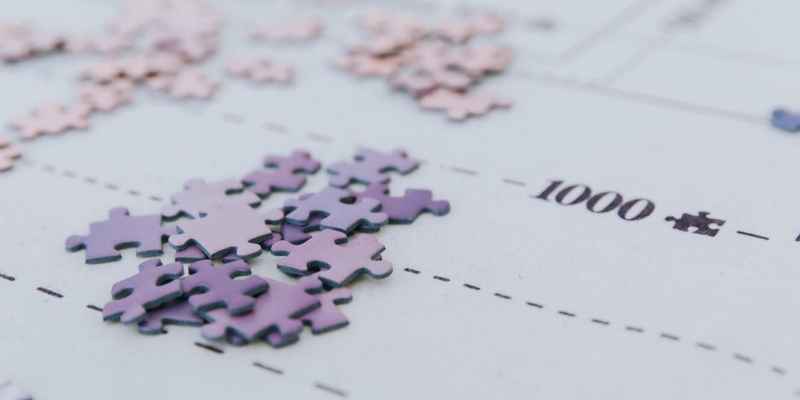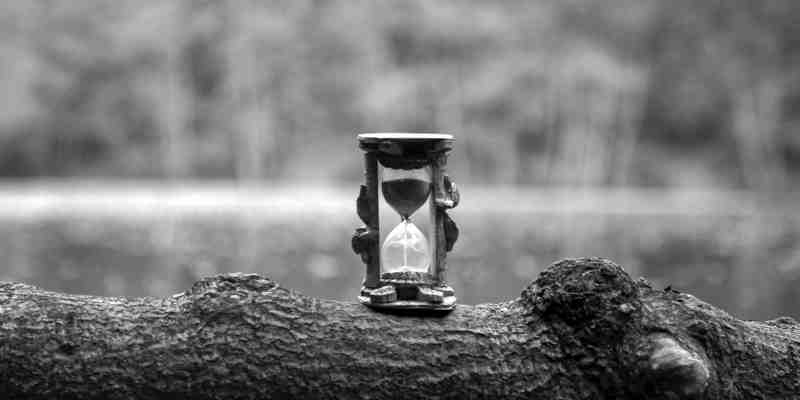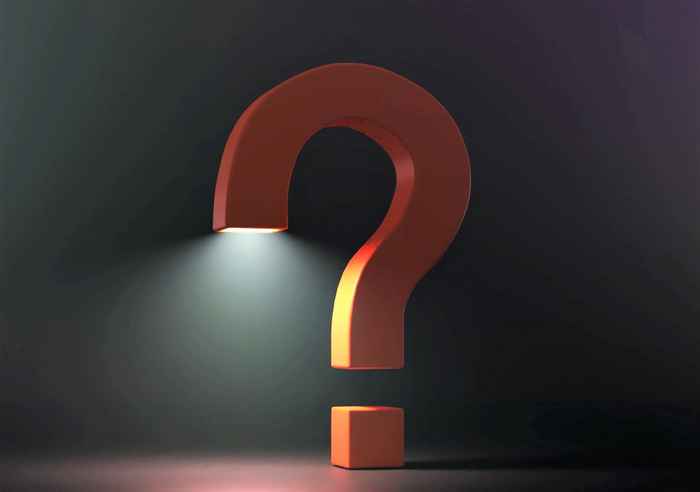How to Ask Questions in Chinese
How to ask questions in Chinese, well, that's a great question!
In our daily conversations, it is very common when it comes to ask questions. From saying hi by asking "How are you" to discussing complex matters, it's hard to proceed with our life without asking questions.
An essential part of learning Chinese is practicing speaking skills and knowing how to properly ask questions will absolutely promote your speaking and bring you more opportunities to speak. Therefore, asking questions is an important skill for Chinese learners.
In English, when people ask questions, the tone will be raised at the end of the sentence. In Chinese, however, since the language itself comes with different tones, there is nothing special about the tones for questions. Rather, there are a few question particles and keywords that make the sentence a question rather than a statement. These words are also very important grammar words in the Chinese language.
So, what are we waiting for?
Let's dive into these important question words!
吗 (ma) - Question Particle for Yes & No Questions

吗 is one of the most important and commonly used question particles in Chinese. It is used for yes and no questions.
By simply adding 吗 to the end of a declarative sentence, it becomes a question.
你吃了吗? Did you eat?
你喜欢吗? Do you like it?
他在吗? Is he here?
是这本书吗? Is it this book?
你可以帮助我吗? Could you please help me?
The last example in the above sentences is a good way to ask for help politely in Chinese. This is where Chinese differs from English, in that "please" or 请 in Chinese is rarely used since it's typically used formally only.
So, if you want to be polite, change your sentence into a question. In fact, the above sentence "你可以帮助我吗?" comes off more polite than "请你帮助我。", which sounds like a command.
Note: you cannot directly use 请 in a question. But if you do want to use 请 as part of a question, you can do so by separating the sentence into two parts, like this:
请你帮助我,可以吗? Please help me, is that ok?
While adding 吗 is very common for asking yes and no questions, there is also another special form people use in Chinese: verb-不/没-verb (typically, the two verbs here are the same, and it's a one-character verb).
You can think of this word-不/没-word form as asking a question with "whether" or "if".
Some examples are given below:
| verb 不 verb | English | verb 没 verb | English |
| 是不是 = 是吗 | Is it? / Correct? / Yes? | 有没有 = 有吗 | Is there? |
| 去不去 = 去吗 | Let's go? / Wanna go? | 好没好 = 好了吗 | (You) done? |
| 吃不吃 = 吃吗 | Wanna eat? | 做没做 = 做了吗 | Did you (do something)? |
Here are some example sentences just to give you a better picture.
你想不想看电影? = 你想看电影吗? Do you want to watch a movie?
你喜不喜欢小狗?= 你喜欢小狗吗? Do you like dogs?
你去不去公园? = 你去公园吗? Are you going to the park? / Do you go to the park?
这里有没有吃的? = 这里有吃的吗? Is there food?
你写没写作业? = 你写作业了吗? Did you do your homework?
你去没去公园? = 你去公园了吗? Did you go to the park?
The main difference between 不 and 没 here is that 不 is generally used for present tense while 没 is used for past tense. This is because 不 means "no/not", while 没 means "don't have".
As you can see from the above examples, when we translate "verb 没 verb" questions into sentences with 吗, there will be "了" after the verb, which indicates past tense. (See the two sentences with "去不去" and "去没去" from the above examples.)
There is one exception, however, which is 有没有, meaning "is there something?" But it can also be used for past tense, which means "did you do something". See below:
你有没有去? = 你去了吗? Did you go?
你有没有吃饭? = 你吃饭了吗? Did you eat?
You may have also noticed that 喜不喜欢 is a bit different from the others. Since the verb here is 喜欢, and it's made up of more than one character, we will need to put just the verb character (喜) before 不, and the entire word (喜欢) after 不.
Some other examples like this include:
你知不知道? = 你知道吗? Do you know?
你记不记得? = 你记得吗? Do you remember?
A similar rule also applies to 没.
你说没说话? = 你说话了吗? Did you speak?
你看没看见? = 你看见了吗? Did you see it?
Another usage of the word-不-word form is for adjectives when asking someone if they are in some state. For example,
你冷不冷? = 你冷吗? Are you cold?
你饿不饿?= 你饿吗? Are you hungry?
However, here you cannot use the word-没-word form for adjectives like what we did with verbs (think of it as asking for your current state, which would be present tense).
什么 (shén me) / 啥 (shá) / 何 (hé) - What

Another common and important keyword for asking questions is 什么, which means "what".
Some examples are given here:
你在干什么? What are you doing?
你想吃什么? What do you want to eat?
你喜欢什么书? What book do you like?
In Chinese, the sentence structure for a statement and a question stays the same, which comes in the order of subject-verb-object. And the verb stays the same as well. Here, 什么 would be the object.
In English, however, the sentence order changes for questions.
Another word for asking "what" is 啥, which is more casual than 什么. Generally, you can replace 什么 with 啥, and people use it frequently in daily life when they talk to people who are close to them.
However, for the last sentence above, "啥书" works but sounds a bit off, I would recommend only using 啥 when nothing comes after it.
There is another word, 何, which also means "what". But it's an older form of 什么 that is still used but more formally.
You can't always simply replace 什么 with 何, as it's formal, less used, and often follows rules from classical Chinese. For the above examples, replacing 什么 with 何 will make them sound weird since these questions are casual.
Here are some good examples using 何:
你有何想法? What do you think?
你作何打算? What are you planning to do?
这是何种书? What kind of book is this?
Note that when you want to ask someone what they are doing, which is a very common thing to ask, do not use 何, but there are a few different ways you can do so:
你在干什么? / 你在干嘛? / 你在干啥?
你在做什么? / 你在做啥?
All of these sentences mean "What are you doing?"
Note that "干嘛" is a commonly used casual word for asking "What (are you doing)".
为什么 (wèi shén me) / 为啥 (wèi shá) / 为何 (wèi hé) - Why

To ask "why", the most common word to use is 为什么 - adding 为 in front of 什么.
Here, 为 means "for", and 为什么 means "for what", that is, "why".
为什么天是蓝色的? / 天为什么是蓝色的? Why the sky is blue?
你为什么哭了? Why are you crying?
他为什么不在? Why is he not here?
Generally, you can add 为什么 to the front of a statement to ask why, like in the first sentence above. But you can also put the subject in front of 为什么, and it works too.
For subject pronouns, people typically put them in front of 为什么.
As we mentioned above for asking "what", you can also use 啥 and 何. This is true for asking "why" as well.
为啥 and 为何 can generally replace 为什么, the only difference is that 为啥 is more casual while 为何 is more formal. But they are typically interchangeable grammar-wise.
怎么 (zěn me) / 咋 (zǎ) - Why or How
There is another word that you can use for asking "why" - 怎么.
For example:
天怎么是蓝色的? = 天为什么是蓝色的? Why the sky is blue?
你怎么哭了? = 你为什么哭了? Why are you crying?
他怎么不在? = 他为什么不在? Why is he not here?
As you can see, we can also replace 为什么 with 怎么 to express "why". But pay attention that the subject must come before 怎么 to make it sound more natural.
In addition, to express "why", you can also use 怎么 to ask "how".
For example:
学校怎么走? / 怎么去学校? How to get to school?
小猫怎么画? / 怎么画小猫? How to draw a cat?
You can put 怎么 either at the beginning of the sentence or right after the object to ask "how".
There is also the word 咋, which is replaceable for 怎么 to ask "why" or "how". But 咋 is more causal than 怎么.
That is to say, for all the above examples, you can simply swape 怎么 with 咋, and they all work just that it will sound much more casual.
Another special usage for 怎么/咋 is:
怎么了? / 咋了? What's wrong? / What happened?
你怎么了? / 你咋了? What's wrong with you?
This is used when something happened (in general or specifically to someone), and you want to learn about the situation, typically to show your concern.
怎么样 (zěn me yàng) / 怎样 (zěn yàng)/ 如何 (rú hé) - How

We have mentioned how to ask "how" above, but there are other common keywords to use as well, including 怎么样, 怎样, and 如何.
Some examples are given below:
你怎么样? How are you?
你们最近过得怎么样/怎样/如何? How are you guys recently?
你的作业写得怎么样/怎样/如何了? How's your homework going?
请问怎么/如何称呼您? May I ask how to address you?
这道菜怎么/如何做? / 怎么/如何做这道菜? How to make this dish?
The three words are typically interchangeable.
In general, when it's "how is/are...", they are placed at the end (after the pronoun or following verb-得). And when it's "how to...", they are placed in front of the verb.
Also note that the last sentence is an example of politely asking someone what to call them (note that in Chinese, people ask how instead of what here).
什么时候 (shén me shí hòu) / 啥时候 (shá shí hòu) / 何时 (hé shí) - When

To ask "when", it's simply what + time in Chinese, that is, 什么/啥/何 (what) + 时候/时 (time).
Note that for 何, you can only add one character 时, as it follows the rule for classical Chinese. While for 什么/啥, add the two-character word 时候.
Some examples are:
我们什么时候/啥时候/何时出发? When do we leave?
你什么时候/啥时候/何时回家? When are you going home?
你什么时候/啥时候/何时吃饭? When do you eat?
你什么时候/啥时候/何时吃的饭? When did you eat?
For all of these examples, 什么时候, 啥时候 and 何时 are interchangeable, and this is true in general. They are typically placed right after the pronoun (if there is one, sometimes the pronoun is omitted).
Also, pay attention that 何时 is formal while 啥时候 is very casual.
Comparing the last two sentences, one is present tense while the other is past tense. The main difference is that there is "的" between "吃饭", more specifically, 的 follows the verb character 吃. This is a common way in Chinese to make an action past tense.
Similarly, you can do this to the first two sentences above to make them past tense - changing the verbs to "出发的" and "回的家/回家的". Since 出发 as a whole is considered the verb, 的 is added after. For 回家, either way works.
With more practice, these rules will come more naturally to you.
哪个 (nǎ ge) - Which

哪 is also a common word used for asking questions. By itself, it means "which" or "where".
Let's first discuss how to ask "which". The most basic word to use is 哪个, which means "which one".
你更喜欢哪个? / 哪个你更喜欢? Which (one) do you prefer?
哪个是你的? / 你的是哪个? Which (one) is yours?
The location of 哪个 can be flexible, it can be placed either before or after the verb.
But it's not always 哪个 when asking "which". In fact, the more general form is 哪 + measure word for different situations.
For example:
哪本(书)是你的? Which (book) is yours?
小花是哪只(猫)? Which (cat) is Xiaohua?
As you can see, we would use different measure words following 哪 for different things, and you can even omit the item/object when it's obvious.
哪里 (nǎ lǐ) / 哪儿 (nǎ er) / 何处 (hé chù) - Where

We also use 哪 to ask "where", but instead of adding a measure word after 哪, a location indicator is used - 哪里 or 哪儿 are the two combinations people use for "where".
你在哪里/哪儿? Where are you?
我们去哪里/哪儿? Where are we going?
饭店在哪里/哪儿? Where is the restaurant?
Here, the format goes like subject-verb-where, and 哪里/哪儿 are interchangeable, but 哪儿 is more casual.
There are other ways to ask "where" formally, with the use of 何. 何处/何方/何在 and more, are different words to use, and they sound more poetic. Among them, 何处 is more common.
Some examples are as follows.
家在何方? Where is home?
他人在何处? Where is he?
佳人何在? Where is the beauty?
Note that all of these examples sound poetic, and you wouldn't use them in daily life.
In the last sentence, 何在 means "where is" rather than "where" for 何处 and 何方. This is a form used in classical Chinese.
谁 (shéi) / 哪位 (nǎ wèi) / 何人 (hé rén) - Who

The most common way to ask "who" is by using 谁. There is also another word 哪位, which is more polite and formal.
See the examples:
你是谁?
您是哪位?
Both mean "Who are you?" But the second sentence sounds more polite than the first one.
Though for grammar, they are interchangeable:
谁/哪位在说话? Who is talking?
谁/哪位来了? Who is here?
There is also a word to ask "where" with 何, that is 何人. Again, this is more poetic and it follows classical Chinese rules and is generally not used in daily life (you are likely seeing them in books).
For example:
来者何人? Who is coming?
敢问阁下何人? Dare to ask who you are? (阁下 is an old and very formal way to say "you".)
Both sound polite but cold and intimidating, especially the second example.
多少 (duō shǎo) / 几 (jǐ) - How Much/Many

To ask how "much/how many", we can use 多少 or 几. Note that 几 is only used for quantities for countable concepts and the number is generally under ten. 多少, on the other hand, can be used more widely.
Some examples are:
多少钱? How much? (Ask for price)
这里有几个苹果? How many apples are here? (<10)
你养了几只狗? How many dogs do you have? (<10)
你有多少本书? How many books do you have?
长度是多少? What is the length?
The general format is subject-verb-"how much + object". When the object you are asking about is countable, a measure word is needed: 多少/几+measure word.
Note that for the last one, the translation is "What is the length?" It seems like a "what" question in English, but if you think about it, it's really asking for a number, and in Chinese, we would use 多少 here. You CAN use 什么 here as well, but it's less used than 多少 for similar situations.
Also, you shouldn't use 几 for length, width, area, and similar measures.
多久 (duō jiǔ) / 多长时间 (duō cháng shí jiān) - How Long

Similar to 多少 - "how much/many", we say 多久/多长时间 for "how long" (duration of time).
For example:
做饭需要多久/多长时间? How long does it take to cook?
她离开多久/多长时间了? How long has she left?
还有多久/多长时间才能到? How much longer will it take to arrive?
In general, the format is subject-verb-"how long", and 多久/多长时间 are interchangeable. 多久 may be slightly more commonly used, as it's simpler (two vs. four characters). However, there is not much difference between the two in actuality.
For the last example, the translation is "how much longer", this is due to the use of "还……才……", meaning "still (more) before (finishing something)".
呢 (ne)

Recall 吗 discussed at the beginning of this article, which is a question particle for yes/no questions. 呢 is also a question particle but used differently.
Similar to 吗, 呢 is also added to the end of a question sentence. For any questions asking for what, where, when, which, how, etc., you can add 呢 to the end.
Generally, it modifies your tone when asking the question. But with or without 呢, the sentence works the same.
Let's take a few examples from above and add 呢 to the end:
你去不去公园呢? Are you going to the park?
你在干什么呢? What are you doing?
你为什么哭了呢? Why are you crying?
你怎么了呢? What's wrong with you?
你什么时候回家呢? When are you going home?
你更喜欢哪个呢? Which (one) do you prefer?
您是哪位呢? Who are you?
做饭需要多久呢? How long does it take to cook?
……
All of the above sentences work, and their meanings stay the same. The only difference is that now the tone changed. It doesn't necessarily make your tone stronger. You may sound more curious than without 呢, and it can also make you sound less aggressive. But overall, the change is subtle.
Also, note that the first example is actually a yes/no question. Since it uses "去不去", you shouldn't add 吗, but you can use 呢 here to modify your tone.
Another usage of 呢 is adding it to an object, directly making it a question. The simple format of "object +呢?" is a complete question.
For example:
你呢? What about you?
你妈妈呢? What about your mom?
他人呢? Where is he?
Typically, "object +呢?" means "what about __?"
Except for the last example, "pronoun + 人呢?" is often used to ask "Where is someone". And in fact, "人呢?" by itself asks "Where is everyone?".
吧 (ba)

Like 吗 and 呢, 吧 is also a question particle and is used at the end of a question sentence.
Generally, 吧 modifies the tone into a suggestion or seeking confirmation.
For suggestions:
我们一起去吃饭吧? Let's go eat together?
下午去公园吧? (Let's) go to the park in the afternoon?
In fact, when it's used for suggestions, the sentences don't have to be questions.
Using "?" or "." at the end works pretty much the same, but the tone may be slightly different. With "?", the tone is less strong than with ".", and generally people would raise the tone slightly at the end of the suggestion with "?" when speaking.
When it's used for confirmation:
他也是,对吧? So is he, right?
这是个三角形吧? This is a triangle, correct?
For statements like these two above, adding 吧 or "对吧" to the end means you're asking for confirmation, basically, you're adding "right?" or "correct?" to the end of the sentence.
Overall, we've talked about many questions, their keywords, and question particles, as well as their usage and examples. To summarize, here is a table of the main things we've gone over in this article.
| Question Particles | 吗 (ma) | End of statement | Yes/no questions |
| 呢 (ne) | End of question | Modifies tone | |
| Object + 呢 | What about __? | ||
| 吧 (ba) | End of statement | Suggestion or confirmation | |
| Question Keywords | 什么 (shén me) / 啥 (shá) / 何 (hé) | What | |
| 为什么 (wèi shén me) / 为啥 (wèi shá) / 为何 (wèi hé) | Why | ||
| 怎么 (zěn me) / 咋 (zǎ) | Why or How | ||
| 怎么样 (zěn me yàng) / 怎样 (zěn yàng)/ 如何 (rú hé) | How | ||
| 什么时候 (shén me shí hòu) / 啥时候 (shá shí hòu) / 何时 (hé shí) | When | ||
| 哪个 (nǎ ge) | Which | ||
| 哪里 (nǎ lǐ) / 哪儿 (nǎ er) / 何处 (hé chù) | Where | ||
| 谁 (shéi) / 哪位 (nǎ wèi) / 何人 (hé rén) | Who | ||
| 多少 (duō shǎo) / 几 (jǐ) | How much/many | ||
| 多久 (duō jiǔ) / 多长时间 (duō cháng shí jiān) | How long | ||
Hope this article provides you with a good amount of information on how to ask questions in Chinese and the grammar behind it, as well as helps you learn Chinese and promote your speaking skills.